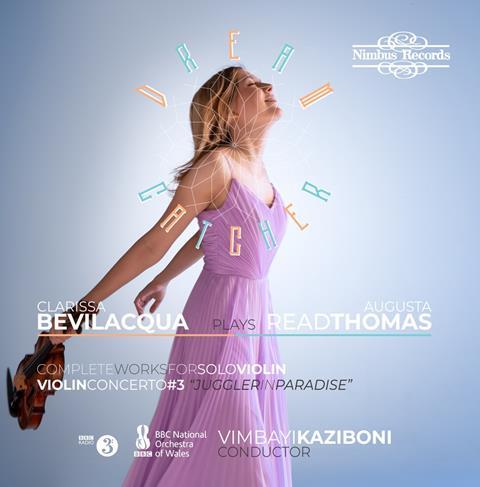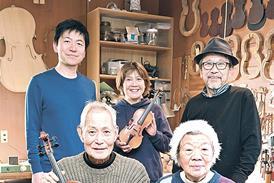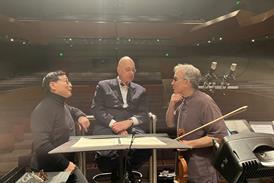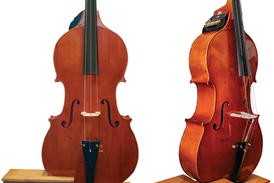Variety aplenty in this snapshot of a distinguished American composer

THE STRAD RECOMMENDS
The Strad Issue: March 2023
Description: Variety aplenty in this snapshot of a distinguished American composer
Musicians: Clarissa Bevilacqua (violin) BBC National Orchestra of Wales/Vimbayi Kaziboni
Works: Read Thomas: Rush; Rhea Enchanted; Caprice; Capricious Toccata: ‘Dandelion Sky’; Dream Catcher; Incantation; Pulsar; Venus Enchanted; Rainbow Bridge to Paradise; Violin Concerto no.3 ‘Juggler in Paradise’
Catalogue number: NIMBUS NI8109
Augusta Read Thomas likes performances of her music which convey the sense of a ‘captured improvisation’, and that’s as neat a way as any of summing up Clarissa Bevilacqua’s playing in this sequence of short solo pieces. Though essentially tonal, they do not so much explore or journey through harmonic landscapes as define and describe them. The keening clamour of Rush is followed by and contrasted with the introspection of Rhea Enchanted, where the double-stopping and multiple lines present the quixotic workings of a single mind – in this case, the mother of the ancient Greek gods.
Video: Clarissa Bevilacqua plays Bach on the 1669 ‘Clisbee’ Stradivarius
Read: Clarissa Bevilacqua wins International Mozart Competition
Video: Bach duet on 1734 Stradivarius and Guarneri del Gesù violins
Read Thomas draws her sources of inspiration from far and wide: a coffee shot for Rush, faint imprints of Native Americana in Dream Catcher. Such eclectically informed curiosity lends a variety often missing from solo-violin albums. So, one infers, does a thorough understanding of the violin, because while each piece captures a single mood, the writing itself stimulates Bevilacqua to dig deep into her reserves of expression for the searing confidence of Pulsar, the statuesque beauties of Venus Enchanted and finally the luminously elevated play between violinist and large, percussion-heavy orchestra in the six brief movements of the ‘Juggler in Paradise’ Concerto.
There are excellent booklet introductions by both Bevilacqua and Paul Pellay, regrettably ‘designed’ into illegibility on the apparent misapprehension that the words will not stand up to scrutiny for themselves. Like Read Thomas’s notes, however, they do.
PETER QUANTRILL









































No comments yet